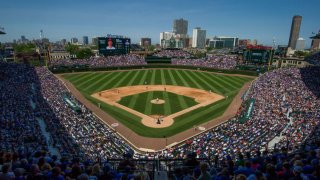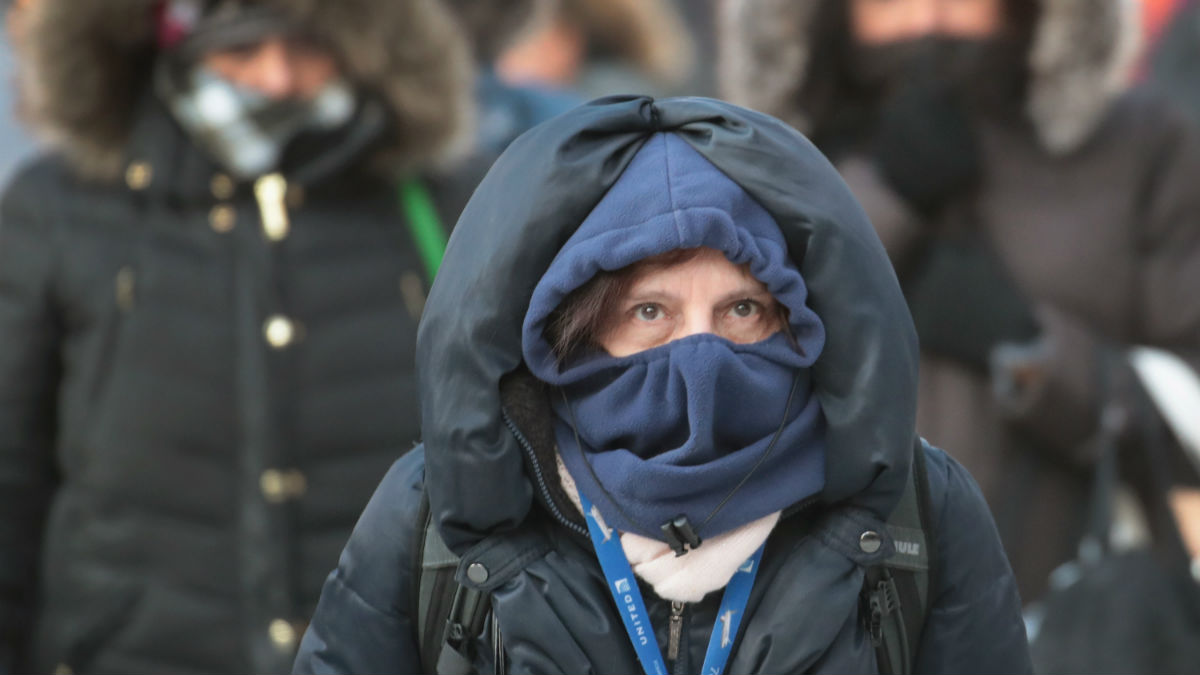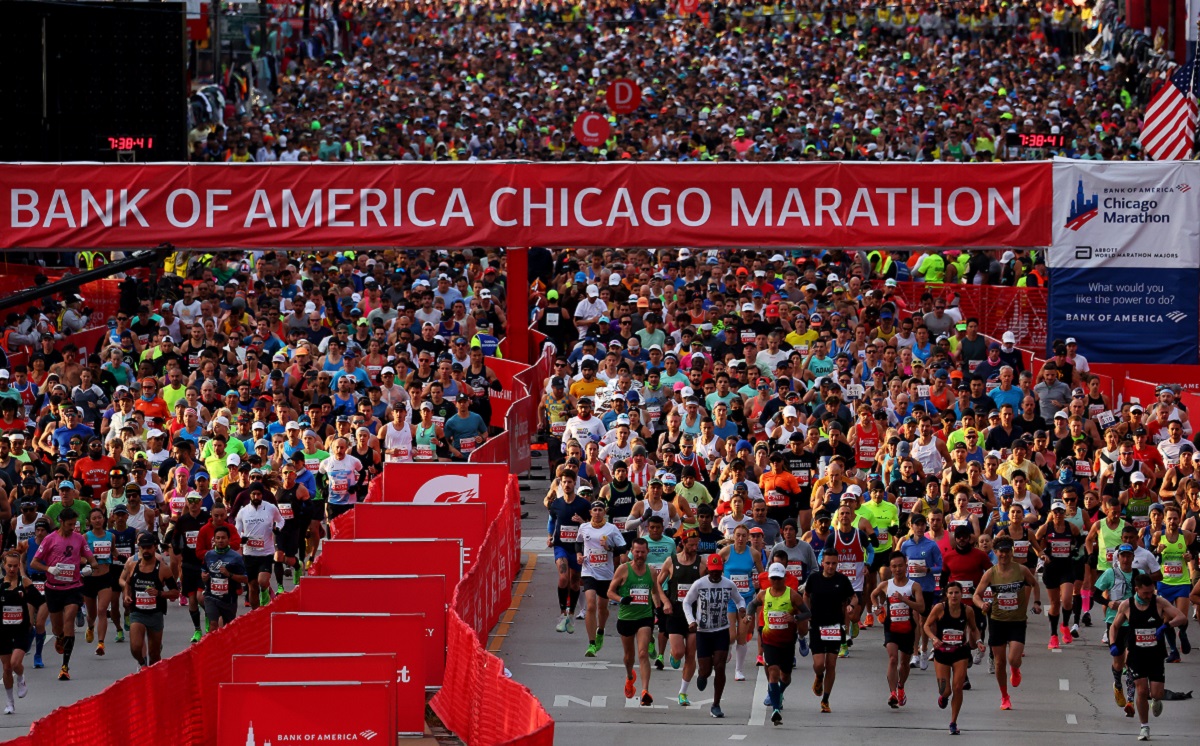
Former Ald. Tom Tunney (44th) battled the Cubs over all things Wrigley Field during his two decades in office, prompting the Ricketts family that owns the team to bankroll a challenger against him — an opponent Tunney defeated handily.
Tunney’s successor appears to be charting a different path.
At Wednesday’s City Council meeting, Ald. Bennett Lawson (44th) introduced an ordinance that would pave the way for selling hard liquor at the rooftop clubs surrounding Wrigley, clubs primarily owned by the Cubs. For now, rooftop patrons can buy only beer and wine.
The ordinance would also authorize the rooftops to open to paying customers, not just during Cubs games but whenever there is a concert, college football game or special event held at Wrigley with expected attendance over 12,500.
In exchange for those money-making changes, the two-year fee for a rooftop license would more than quadruple, from $1,000 to $4,400.
Lawson called the addition of hard liquor — either in cans or glasses no greater than 3 ounces — a natural offshoot of what’s going on inside the stadium and on Gallagher Way, the plaza next to Wrigley open only to ticketed customers.
The limit for “beer, hard cider, hard seltzer, malt liquor and similar beverages” would be 16 ounces. Portions of wine would be capped at 6.3 ounces. Packaged goods would be prohibited.
Local
“What’s different about the rooftops than in the ballpark or the plaza is that it’s all inconclusive. You buy your ticket and it includes your food and your drink. And at the end of the 7th [inning], they stop serving alcohol. They have to have food out the whole time,” said Lawson, acting chair of the City Council’s Zoning Committee.
“People stay within the space. They also don’t move around. So you’re actually able to monitor them a lot easier than if they were bar-hopping or going from section to section.”
Feeling out of the loop? We'll catch you up on the Chicago news you need to know. Sign up for the weekly> Chicago Catch-Up newsletter.
Rowdy and inebriated fans urinating in public and littering have been a chronic neighborhood complaint. But Lawson said he does not believe “responsible” hard liquor sales to rooftop patrons will exacerbate that problem.
“There are people who never want anything to change at Wrigley. But this is pretty minor in the grand scheme of changes. … If there are issues to address, the 44th Ward is certainly on top of things like that. The onus is on the operator and the operators have asked for this,” Lawson said.
“If we see specific increased complaints tied to irresponsible service at rooftops, we can curtail hours. We could curtail offerings. We have the same tools as if you had a bad bar,” he added.
“You could have a community meeting. You could have liquor license violations. We actually have more controls because it’s a highly specialized area than we would if it was just a regular tavern. Hopefully, we won’t have to. … It starts with responsible service inside and outside, making sure we’ve got places to go to the bathroom and throw your garbage. And then, you have that robust clean-up.”
Cubs spokesman Julian Green said it’s high-time to update the 20-year-old rooftop ordinance that authorized beer and wine sales for “baseball games only.”
“We’re hosting concerts. We’re hosting football games. We’re doing numerous special events. We want to make the experience for our fans similar to what they get in the ballpark. You can buy liquor right now in Wrigley Field. Now, we’ll be able to sell liquor on the rooftops,” Green said.
“Our partner, Levy, is one of the most responsible food and beverage operators in the country with trained staff and training they undergo every year.”
Green said a recently completed survey of area residents showed “the majority” of those questioned “actually feel safer” while games are being played at Wrigley.
“There’s no perceived or forecasted or anticipated issues,” Green said.
“No one is a better steward of our brand than the Cubs. We will make sure that this is not only going to be a plus for our fans. The neighborhood will continue to thrive and be a wonderful place — before, during and after Cubs games.”



